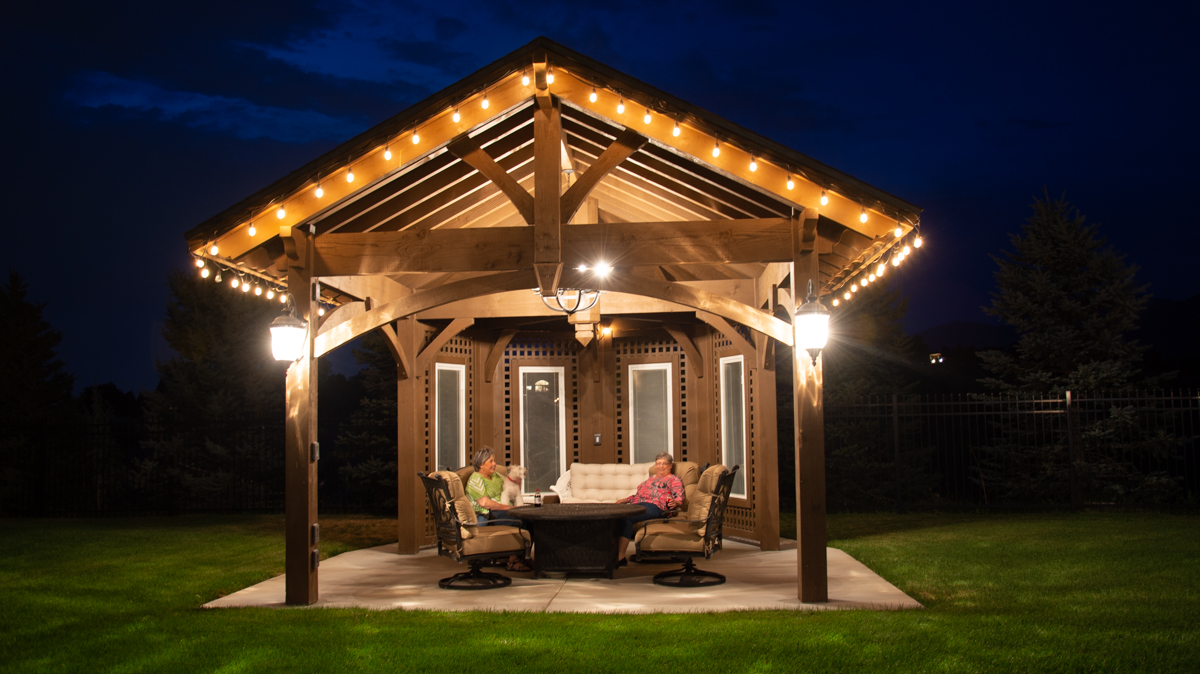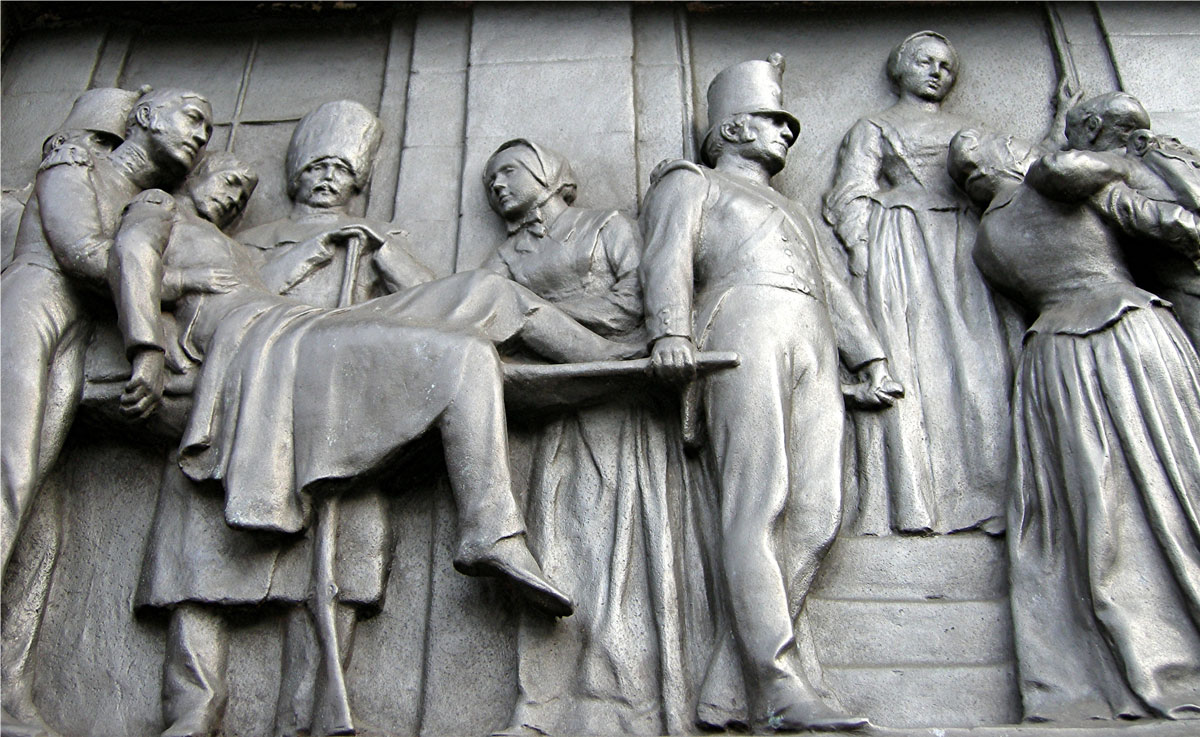Genius Minds are Born in Outdoor Living
It happens to us all: passing lights, blaring noises, long day — your energy feels wagged out. When you feel spent, cultural conditioning may try and tempt you to stay in the house and be entertained with Netflix, a bowl of ice-cream or browsing in cyberspace.

There may be worse things you could succumb to but…
…you have a strict…
…’no deals with the devil policy.’
Instead you step outside, breathe in living air and touch the textured material we all feel at home with: warm organic wood. The earth grounds us and calms us with its fragrance. Out-of-doors is where you find your rest, renewal and clarity; the heart of coming home.

Outdoor natural environments contain significant secrets that lift more than the clouds of your mind; it recharges your mitochondrial batteries — and it can even make you smarter. Better yet, science says more than merely making you supersmart — being in the presence of living surroundings is the place of creativity — where geniuses are born.
Outdoor Living Raises Cognitive Aptitude
The first documented study of immersing people in an outdoor natural environment and testing for cognitive changes was conducted at the University of Kansas. Associate Professor of Cognitive and Clinical Psychology Ruth Ann Atchley and her colleagues wanted to know how the outdoors affects human creativity.
In a press release, Atchley said, “There’s a growing advantage over time to being in nature. We think that it peaks after about three days of really getting away.”
The results were not just about spending time in the outdoors. Atchley pointed out: the things they stepped away from, “turning off the cellphone, not hauling the iPad and not looking for internet coverage.”
Atchley explains, “It’s when you have an extended period of time surrounded by that softly fascinating environment that you start seeing all kinds of positive effects on how your mind works.”
The participants of the study were divided into groups across the United States. All of the participants were inexperienced hikers, 56 volunteers (with informed consent) ranging from 18-years-old into their 60’s with the average age of 24 to 28. They each had unlimited time to complete their tests. The test was measurable and real.
The first group was given a standard creativity test called the Remote Associates Test before they backpacked on a long nature trail.
The second group of hikers took the same test four days into their journey through nature and scored 50% higher than the first group did. Participants from the second group had a higher cognitive advantage in:
problem-solving,
switching tasks,
maintaining task goals,
and thinking creatively
after being exposed to stimuli of outdoors in nature for a longer period of time.
Since the dawn of the internet, the world has benefited in available knowledge and communication. And yet, many experts contend that this technology has negative effects on learning and social interactions. They contend we are more easily irritated, less sociable, and more distracted.
We can’t blame our weaknesses on being detachment from nature, but research affirms there is some unraveling of psychological resilience. And at times, we can all do better at paying attention to details, being more empathetic, and internally rooted. But that’s where the experts say viewing a parade of wildflowers, walking in the mountains, or digging in a garden will do us good.

Geniuses Inspired by the Outdoors
Beethoven
Beethoven — a musical genius — often hugged his linden tree and insisted, “No one can love the country as much as I do.” His symphonies depict nature, storms, a downpour of rain, gentle raindrops, wind, and flashes of lightning and more. He was inspired by nature, and he dedicated music to landscapes. The thoughts of Beethoven were: For surely woods, trees, and the rocks give man the resonance he needs and the echo he desires to hear.
The one thing the world’s greatest minds have in common is endless curiosity. Curiosity is the key to unlock creativity.
Leonardo da Vinci
Leonardo da Vinci excelled in a variety of interests which included: anatomy, architecture, astronomy, botany, cartography, engineering, geology, history, invention, literature, mathematics, mechanics, music, painting, physics, science, sculpture, weaponry, writing and more. Da Vinci even created accurate and doable designs for machines that would be created centuries later, such as the bicycle, helicopter, military tank, and a submarine.
Leonardo da Vinci was a man who was curious about so many things. He once entered a note to himself: Describe the tongue of the woodpecker.
Benjamin Franklin
“Our opinions are not in our own power;
they are formed and governed much by circumstances that are often
as inexplicable as they are irresistible.”
– Benjamin Franklin
Benjamin Franklin was a natural philosopher and a brilliant man. His success was driven by a constant desire to mentally and morally improve upon himself. Franklin was renowned for his inventions, diplomatic and political triumphs, as well as scientific achievements. Oh, and in his spare time, he helped to establish a new country.
Franklin composed and played numerous musical instruments, including the guitar, harp, and violin. He invented and built a musical instrument he called the Armonica, also known as the glass harmonica. Thousands of Armonicas were manufactured and sold. Famous composers began writing music for it including, Beethoven, Donizetti, Mozart, and Strauss. The queen of France, Marie Antonette also charmed by Benjamin Franklin’s mesmerizing instrument, took lessons to learn to play. He is notable for inventing bifocal eyeglasses, the lightning rod, and the wood-burning stove.
According to his own writings, in 1752, Franklin, with his son, did his famous experiment of flying a kite with a key tied to it during a thunderstorm to prove that lightning was also a form of electricity. He never ceased to improve upon his mind.
Benjamin Franklin advocated we all have a mind that is extraordinarily fertile. We were born without knowledge, but we were all born with curiosity, capable of lifelong discovery, improving yourself and doing well by others.
The Creative Mind
The late radio news commentator Paul Harvey Aurandt, legendarily known as Paul Harvey – a broadcaster of news for the ABC Radio Networks, famous for his “Rest of the Story” segments – began his last speech to fellow professionals in the radio industry at the R&R Talk Radio Seminar, with these four words:
“Be still my heart.”
Paul Harvey explained he had a Jim Daly painting on his wall at home in which there was a note attached saying:

“There is no way for me to express the pleasure I received from listening to the old radio programs. In my mind those wonderful heroes were magnificent. No movie, no television program, not even real life could have equated what my imagination could conjure up. Amazingly all of those heroes, he says, looked a bit like me. And all of those heroes he described looked a bit like me.”
Paul Harvey went on to say that, “Special effects for all their sophistication are still not as effective as the human imagination.” And how fourth and fifth-grade elementary students were surveyed after seeing a Harry Potter movie. When they try to reread a Harry Potter book, they explained how their imagination was constricted and limited by what they had seen.
Geniuses are nonconventional and do not rely on what they have been taught in problem-solving. What makes a genius is in their ability to think productively. They generate alternative approaches and possibilities in a unique way when confronted with a difficulty.
Let your heart resonant with nature and discover
the Beethoven, Leonardo da Vinci, or Benjamin Franklin genius in you.
“I have never seen a picture on television or anywhere else that compares to the phenomenal pictures my brain can paint. I think radio is the ultimate visual medium. There is nothing anybody can do on that flat two-dimensional screen – nothing – that compares to the phenomenal pictures that are painted by your mind’s eyes stimulated by our beautiful language.” – Paul Harvey
Continuing Paul Harvey’s address:
Quidditch was much more fun in our minds. So distinct is the disparity that the publishers of the books will use no scenes from the movies on the covers of those books. You trust me to paint. You trust me to paint pictures in the mirror of your mind.
And I will let you feel such agony and ecstasy,
such misery and such magnificence as
you would never be able to feel by looking at it.
Let me paint you a picture of your unrequited love in 17 words:
When the fire in me meets with the ice in you, what could remain but damp ashes?
Now, you tell me what picture in all of the film could you duplicate that poignancy?
We court with the lights turned down. That’s to remain undistracted.
We savor a fragrance or a kiss, or a foot massage with our eyes closed.
In some instances, Paul Harvey says, “a picture would ruin a story for you. . .“
Meet Martha and Chris Gerson of Gering, Nebraska.
Every weekday afternoon at 2:00 Martha lowers the window shades;
disconnects the telephone;
and turns on the TV to watch the wrestling matches.
Martha admits that she loves to watch those big bruisers headbutt one another…
…and body slam one another – and then when she gets sufficiently worked up …
…she throws a step-over toe hold on her husband Chris.
And there on the floor in front of the TV set …
…they wrestle until one is able to pin the other.
Don’t you tell Martha Gerson that wrestling matches on TV are staged. She says if there is anything on TV that is staged it is soap operas. She says the wrestling matches, those are for real, including hers with Chris; which by the way she usually wins.
Hover Over
For the Rest of the Story…
Martha Gerson is 76-years-old.
Her husband Chris — is 83.
Now, that picture that you have been imagining is infinitely more entertaining than any picture could be.
Andrew Newberg, M.D. and Mark Robert Waldman wrote a book called Words Can Change Your Brain. In the book, they write: a single word has the power to influence the expression of genes that regulate physical and emotional stress.” Science has shown the power of language can literally alter your physical brain.
Your brain is the physical organ of your tangible, visible body associated with the mind. The mind is part of an invisible world of thoughts, beliefs, attitudes, feelings, and imagination. How well you feel in your body also affects your thinking.

#DIYPergolaKit #OutdoorLiving
Outdoors in nature have been a source that people — from all walks of life — connect to, with their body and mind. Aristotle believed walking in the open-air clarified the mind. In Japan, touching wood is “medicine” to preserve health and treat illnesses. It is not only touching, but studies also claim all the senses in nature stimulate the immune system. Just the smell of the fresh earth acts as an anti-depressant.
The bacterium found in soil stimulates the production of serotonin helping the body to feel happier and more relaxed.
In 1989, David Strachan, a British scientist presented what he termed the “hygiene hypothesis.” In our modern, sterile environments many children are not getting exposed to the earth’s natural microorganisms — found in the dirt — to build and repair their immune systems. As a result, there are higher rates of allergies and asthma.
Penicillin was first developed from a soil fungus. Microbes such as mycobacterium vaccae, a substance found in soil have an effect on the neurons of the brain — similar to Prozac — but without potential chemical dependencies or side effects. It is as easy as getting your hands in the dirt, like you did as a kid. Every child should experience the pleasure of shaping a mud pie.
“Every child should have mud pies, grasshoppers, water bugs, tadpoles, frogs, mud turtles, elderberries, wild strawberries, acorns, chestnuts, trees to climb. Brooks to wade, water lilies, woodchucks, bats, bees, butterflies, various animals to pet, hayfields, pine-cones, rocks to roll, sand, snakes, huckleberries and hornets; and any child who has been deprived of these has been deprived of the best part of education.”
– Luther Burbank
Just the view of natural beauty elicits feelings of awe, another sure way to give you a mental boost. And speaking of view, research has also shown children have more protection against developing myopia — nearsightedness — by playing outside.
Many respectable scientists, sociologists, doctors, and mental health experts suggest that when people do not get out in the natural world and play, it doesn’t only affect their individual well being, it also affects society as a whole in how they interact and influence each other.
In America, it has become culturally acceptable to spend the majority of our time indoors, especially when the weather is cold. With many countries, going outdoors is ingrained in their culture. If you lived in Sweden — nature waters the garden of the soul — and there is no such thing as bad weather.
“I feel that nothing can befall me . . . which nature cannot repair.”
– Ralph Waldo Emerson
Nature is a tool. Nature influences people and people who spend adequate time in nature can increase their ability to construct new ideas and produce happier thoughts. Being in God’s great outdoors improves judgment, increases confidence, and creates a sunnier disposition.
Again, the incredibly improved cognitive thinking results were not just about spending more time in the outdoors, as Associate Professor of Cognitive and Clinical Psychology Ruth Ann Atchley said, it is: turning off the cellphone, not hauling the iPad and not looking for internet coverage.
What you do outside moves how you think and behave so when you just want to kick back and breathe easy, go outside and be indulged and inspired.

#DIYPergolaKit #ShadeScape #PoolSideShade
Human Need For Fresh Open Air & Sunlight

#FlorenceNightingaleMemorial
You and I already know — how good the wide-open spaces are for us — even without all of the evidence-based research but repetition is truly the mother of all learning. When we listen to things we already know, we may learn something new and open the eyes of our understanding even more. And what is old is often becomes new. Many old-time doctors and nurses told patients to go outside or “breathe in the sea air.” Take a look at Florence Nightingale’s lovely notes on nursing as she strongly advocates patients being exposed to fresh air and sunlight.
It is the unqualified result of all my experience with the sick, that second only to their need for fresh air is their need of light; that, after a close room, what hurts them most is a dark room. And that it is not only light but direct sun-light they want.
I had rather have the power of carrying my patient about after the sun, according to the aspect of the rooms, if circumstances permit than let him linger in a room when the sun is off. People think the effect is upon the spirits only. This is by no means the case. The sun is not only a painter but a sculptor. You admit that he does the photograph.
Without going into any scientific exposition we must admit that light has quite as real and tangible effects upon the human body. But this is not all. Who has not observed the purifying effect of light, and especially of direct sunlight, upon the air of a room?
Here is an observation within everybody’s experience. Go into a room where the shutters are always shut – in a sick room or a bedroom there should never be shutters shut – and though the room be uninhabited, though the air has never been polluted by the breathing of human beings, you will observe a close, musty smell of corrupt air, of air i.e. unpurified by the effect of the sun’s rays. The mustiness of dark rooms and corners, indeed, is proverbial.
The cheerfulness of a room, the usefulness of light in treating disease is all-important.
– Florence Nightingale






